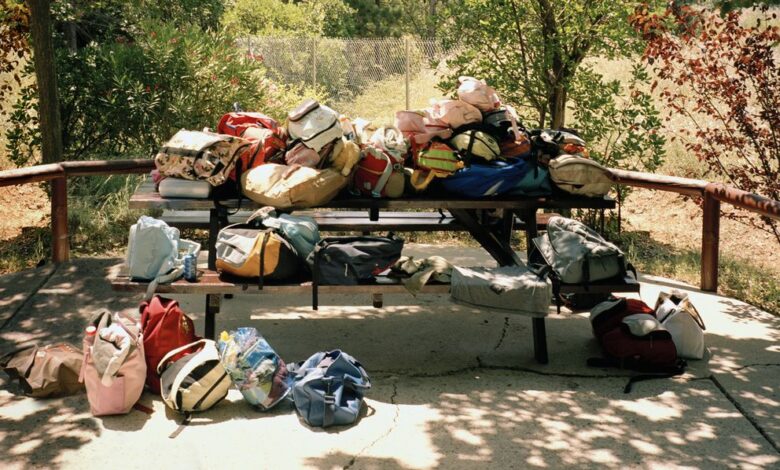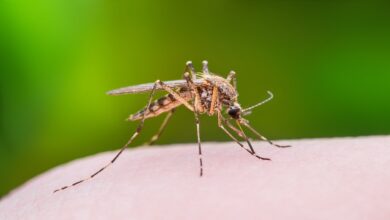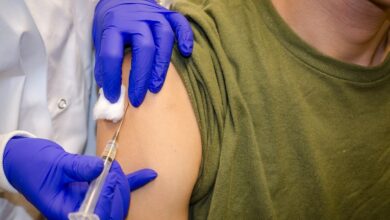COVID-19: Are Summer Camps Safe?

Sending kids to summer camp may have felt like a pipe dream to most parents during the height of the pandemic in 2020, but open vaccine eligibility has families very hopeful for 2021. After spending a year plus inside and away from friends, kids are itching to get outside — as are parents, who are so eager that camps are experiencing record level interest in their programs since the pandemic began, according to NBC News. The surge in interest is likely due to an April announcement from officials at the Centers for Disease Control and Prevention about camp safety, as the agency has drafted a new set of guidelines for camp administrators and counselors to prevent COVID-19 outbreaks amid their campers.
These new guidelines have drawn a bit of criticism, as some believe they are in contrast to recent updates to CDC guidance that deemed that vaccinated individuals can take their masks off outside. Initially, CDC officers suggested that masks be worn by staff and campers at all times, including outside during physical activity, all while maintaining at least 3 feet of social distance. The only exception would be for swimming and during mealtimes, when experts suggest a minimum 6-foot distance.
Dr. Anthony Fauci, the director of the U.S. National Institute of Allergy and Infectious Diseases, told members of the press in April that camp safety guidelines, which he referred to as a “bit stringent,” would likely evolve over time.
This content is imported from YouTube. You may be able to find the same content in another format, or you may be able to find more information, at their web site.
“I wouldn’t call them excessive, but they certainly are conservative,” Dr. Fauci told Savannah Guthrie during a TODAY appearance. “And I think what you’re going to start to see is really, in real-time, continually reevaluating that for its practicality. Because you’re right, people look at that and say, ‘Well, is that being a little bit too far right now?'”
CDC Director Rochelle Walensky, M.D., has since clarified that vaccinated teens will be able to remove masks while outside at camp this summer. She also indicated that if one of the currently in-use vaccines are approved to expand into the 12 to 15 age range, then those campers would also be able to remove masks outside after vaccination, The Hill reports. And she’s clarified that guidelines have been updated so that those under the age of 12 can take their masks off outside when in small groups. “What we’re really trying to avoid in this camp guidance is what we saw in outbreaks in camps last summer,” Dr. Walensky told the press.
Where does that leave your family, you may wonder? For those with young teens over the age of 16, getting vaccinated alleviates much of the risk of traveling to camp and home each day (and is especially crucial for sleepaway programs). For all others, understanding your own family’s potential threat or risk associated with sending a child in and out of the home every day is crucial. It’s also a time to research the best options in your area before making a final decision.
This content is imported from {embed-name}. You may be able to find the same content in another format, or you may be able to find more information, at their web site.
What guidelines are in place to keep camps safe?
The full CDC camp guidelines are designed to lower the risk threshold for SARS-CoV-2 spread among campers as well as camp staff. Here’s a recap of what CDC officials are asking camp administrators to keep in mind to lower risks for all:
- An emphasis on outdoor activities: Because COVID-19 is primarily spread when individuals are inside due to its respiratory nature, outdoor activities are preferred to dramatically lower risk. All camp programs that keep activities exclusively outside in uncrowded spaces are likely to be much safer overall.
- Mask wearing: Anyone over the age of 2 must be wearing masks outside and indoors, except for when swimming or eating. Camp staff should double-mask to prevent potential spread, with emphasis on staff that directly handles camp activities on a daily basis.
- Physical distancing: CDC officials recommend that camps use a system they call “cohorting,” meaning that campers and staff are sequestered into pod-like groups that remain together as much as possible. This will work to limit risk amid larger groups; even those in cohorts must remain at least 3-feet apart, and others 6-feet apart, throughout the day.
- Increased hand hygiene: Both staffers and campers will need to regularly keep hands clean, even when off-site in rural areas with the use of hand sanitizer or other methods.
- Frequent testing or monitoring: Some camps may require daily self-monitoring assessments on behalf of staff and campers, or other methods such as temperature checks before the day begins. In any case, CDC officials ask that staffers, especially those who are unvaccinated, frequently get tested to avoid impacts from asymptomatic sickness.
- Increased cleaning and maintenance of facilities: Whether it’s just a lunch hall, a game room or a cabin bunk, camp officials will develop a rigorous cleaning schedule to keep surfaces frequently sanitized and disinfected when possible. Facilities will be organized to promote social distancing and improved ventilation when possible.
- Other considerations for sleepaway campers: To reduce risk, sleepaway campers may be asked to quarantine for 2 weeks before arriving on campus. Like any other kind of non-essential travel, those traveling from out of state via air, rail or by car will be asked to adhere to travel guidelines in their destination. Currently, there are 5+ states asking for additional precautionary testing or quarantines, per the New York Times.
- Having a contingency plan if someone falls ill: Because travel to and from camp may be shared, camp officials will work out a suggested quarantine plan if exposure occurs.
There are further guidelines suggesting more initiatives or plans for those who aren’t vaccinated. To see the CDC’s full list of suggestions for safe camp experiences, click here.
Is it risky to send your child to camp?
The risk level for your child (or others in your family) to contract COVID-19 often depends on how viral the infectious disease is in your area, as well as the structure of the camp program you’ve chosen for your child, explains José Mayorga, M.D., the executive director of the University of California Irvine Health‘s Family Health Centers and a clinical professor at the university’s School of Medicine.
“It’s well documented that outdoor activities carry a significantly lower risk of getting COVID-19, but the risk still exists,” he explains, adding that a viral 2020 summer camp outbreak in Georgia occurred after organizers ignored safety protocols like mask-wearing. “On the other hand, however, day camps that implemented public health protocols had very few COVID-19 cases. If activities are designed with safety in mind, the risk can be dramatically low.”
You’ll notice that Dr. Mayorga differentiated between day and sleepaway camps here, and that’s because risk is significantly higher for those who spend evenings inside with other campers. He tells Good Housekeeping that air ventilation plays a key role here: “If you have multiple campers sharing a tent or cabin with poor air circulation, this dramatically increases your risk. We shouldn’t forget that it also takes up to 2 weeks following exposure to develop COVID-19; while you can demonstrate a negative COVID PCR test on day one, it doesn’t mean you won’t become ‘positive’ so to speak the next day and infect others around you.”
This content is imported from Instagram. You may be able to find the same content in another format, or you may be able to find more information, at their web site.
A day camp isn’t free of its high-risk vectors for COVID-19 spread, either. In city centers, outdoor activities may be tough to coordinate in non-crowded spaces; public or shared transportation to and from camp can also be an opportunity for your child to be impacted by a sick individual.
Take these four things into consideration before deciding to enroll your child in a summer camp this year:
- Is your child at higher risk for severe illness? The CDC notes that similar to adults, children with diabetes, asthma or chronic lung disease, sickle cell disease or immunosuppression might also be at increased risk for severe illness from COVID-19. If your child falls into this group, it’s crucial to talk with their pediatrician first. And it’s imperative to review safety protocols for staff and campers who might be at higher-risk of serious health effects if they contract COVID-19.
- Day camp versus sleepaway camp: Unless your child is old enough to be vaccinated, there’s a significant risk associated with traveling and cohabitating with other kids at sleepaway camp, even with quarantines and frequent testing. In theory, a day camp will offer a reprieve from being at home at a smaller risk factor.
- Daily transportation to and from camp: How will your child be transported during the summer? If you’ll be dropping and picking them up in a private vehicle, risk for household transmission is much lower compared to public or shared transport.
- Is your household vaccinated? Lastly, and most importantly, think about the risk associated with your child re-entering your home on a frequent basis. Could kids impact anyone’s health in your home if they end up contracting COVID-19? Those who aren’t vaccinated may benefit from not sending a child to camp to reduce overall risk of infecting a household.
How to find the safest summer camp:
Camp administrators have a lot of planning ahead of them to ensure a safe and fun summer for staff, campers and parents, too. It’s up to you to ask the right questions when researching potential fits for your child, or considering sending them back to a program they enjoyed in 2019 or previously.
As Dr. Mayoraga established above, you’ll need to exercise extra caution around sleepaway camps and plan for mandatory quarantines and more. Parents should be able to seek the following information from camp staff — plus, the following standards you should expect to hear in order to determine whether or not a program is following CDC guidelines.
Be sure to ask these questions:
- How many children will be participating in camp this year? If the answer is anything more than 20, staff should be preparing to use camp cohorts to keep possible infections to a minimum.
- Will you require masks and hand hygiene? While outdoor use may vary, masks should be worn inside at all times, and opportunities to practice hand hygiene should be made available regularly.
- Will facilities be optimized for safety? Organizers should be able to tell you more about their plans to reduce crowding in indoor spaces, and ventilation efforts if campers will be forced indoors.
- Will staff be required to be vaccinated? And if not, how are you ensuring that traveling staff will not impact my child’s health throughout the summer? Another follow-up question would be to inquire about their COVID-19 testing policy.
- How will you handle a sick child or staff member? A thorough contingency plan should be in place for when a test comes back positive or someone begins to show symptoms.
Like other activities you’ve coordinated throughout the last year, parents may choose to tackle summer camp as a pod. “It’s not a bad idea. You would know who is adhering to COVID-19 precautions throughout the pandemic, and you can coordinate registration,” Dr. Mayoraga says, adding that you’ll also know who exactly is in your child’s cohort. “This way, you’ll know exactly who the kids are playing with at these day camps before returning home.”
This content is created and maintained by a third party, and imported onto this page to help users provide their email addresses. You may be able to find more information about this and similar content at piano.io
Source link





